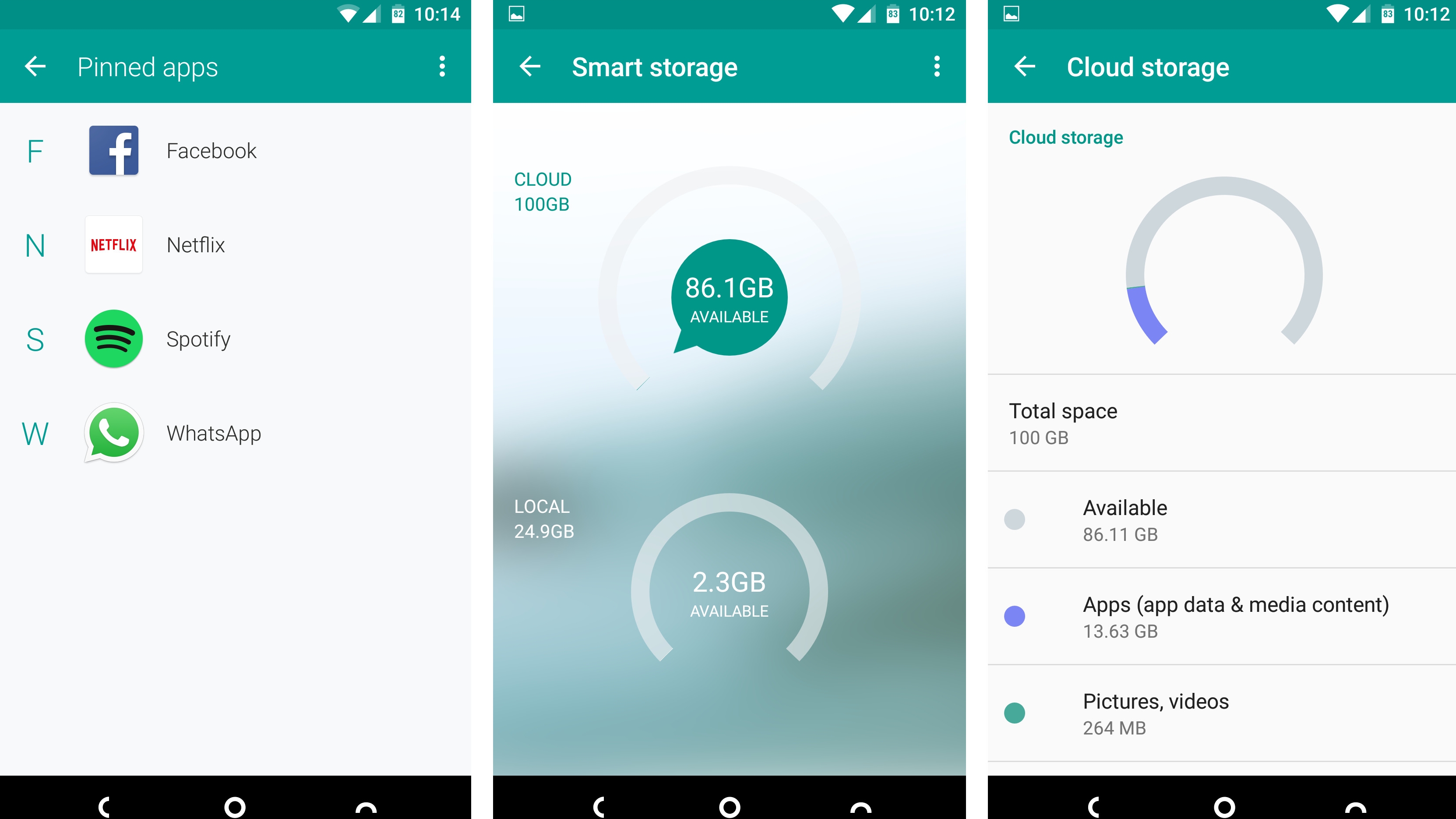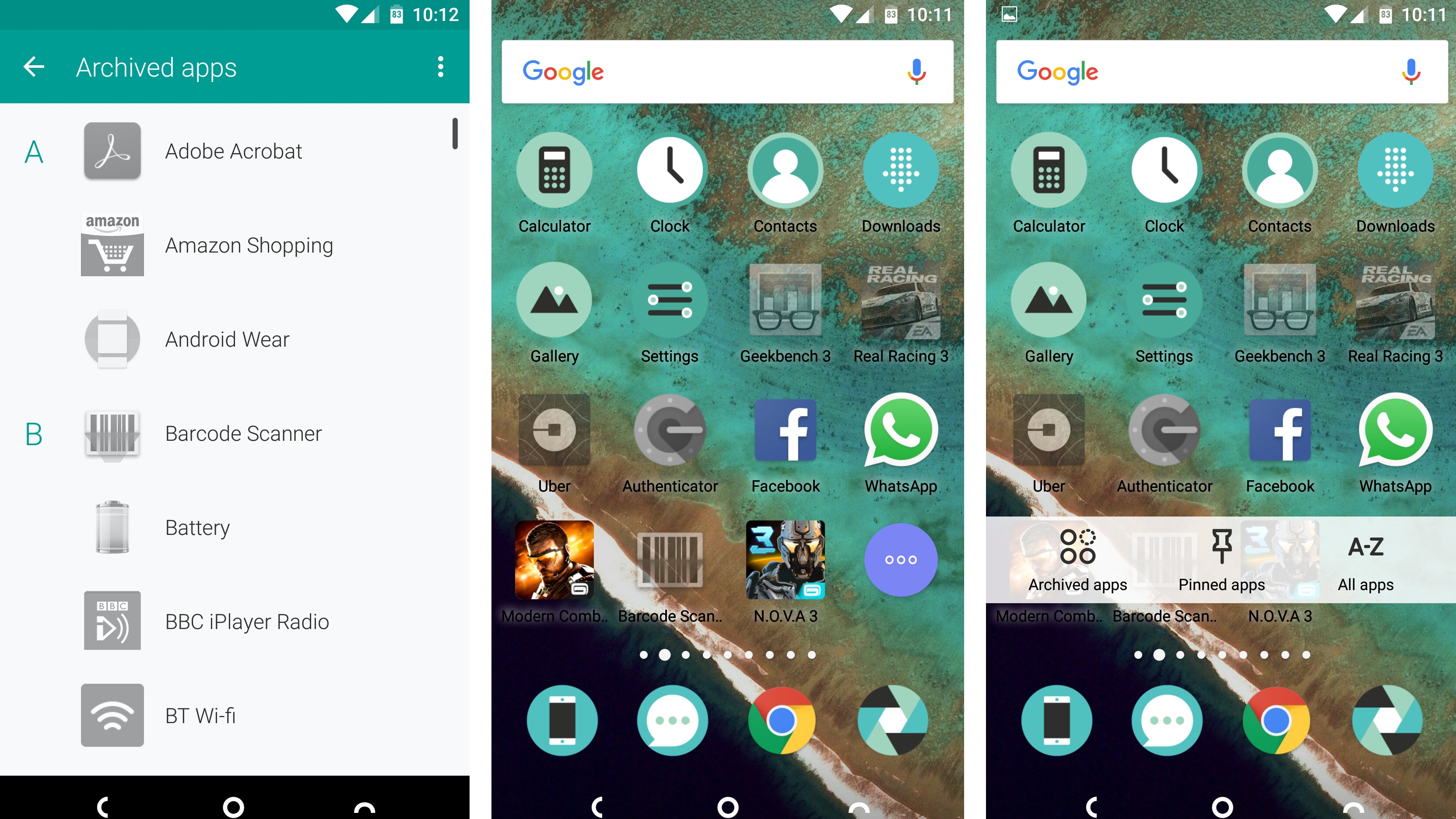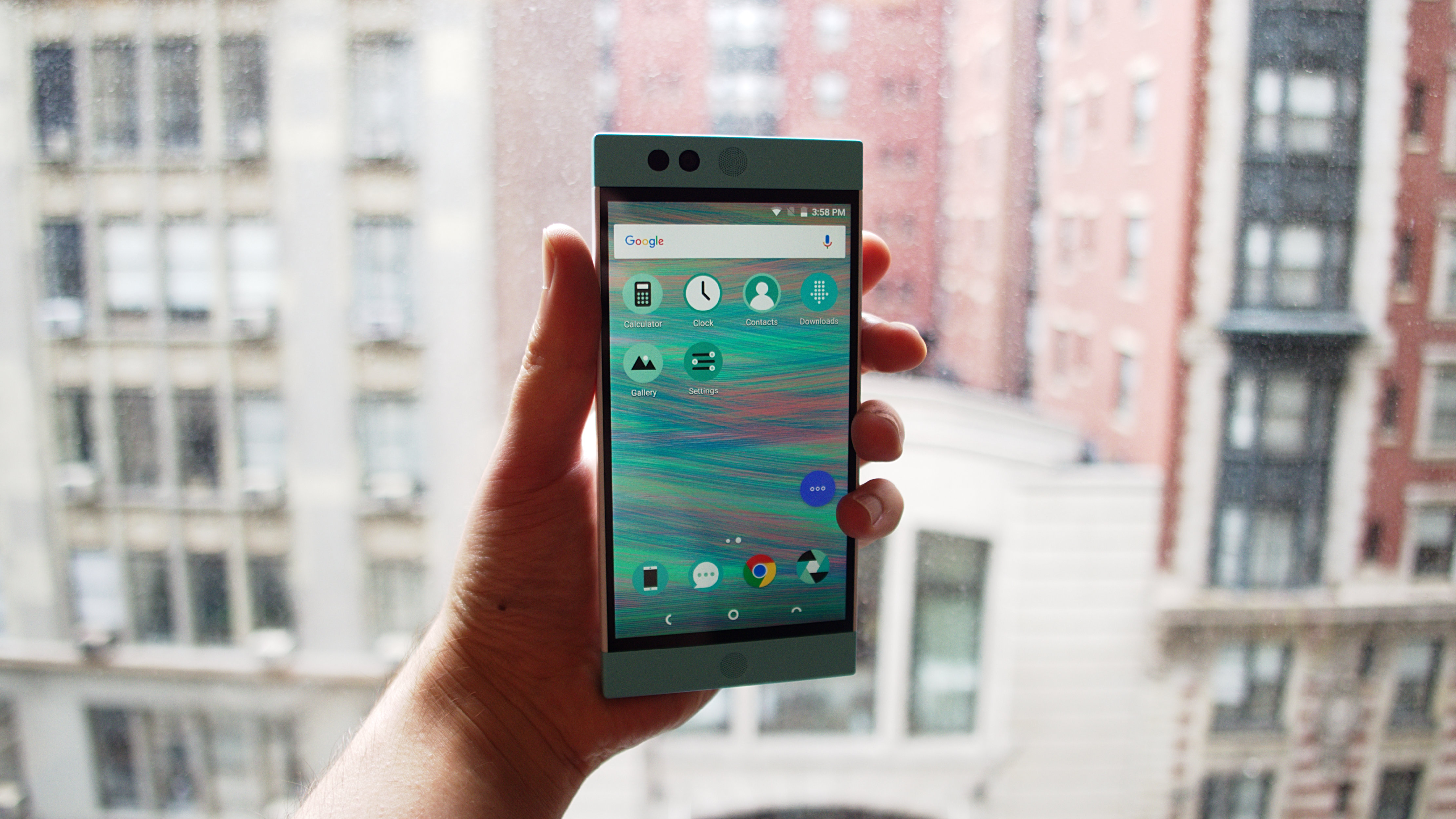Why you can trust TechRadar
As I've mentioned, the Nextbit Robin is all about the cloud. It comes with 100GB of free cloud storage – but this isn't just any old cloud storage, as the team has built it into the phone itself.
What this means is that when you're running low on the 32GB of built-in storage the Robin will automatically and intelligently offload things to the cloud the next time it's plugged in and connected to Wi-Fi.
And I'm not just talking photos here – unlike most cloud storage it will also save apps and their data to the cloud.
It's easy to keep track of what's online and what's local too. Apps, for example, will stay on your home screens, but will be greyed out when they're online.
Or, for an overview of all your online apps there's a button on the bottom left of each screen, which can show you all your archived apps. A simple tap on any of them will download them and their data back to the phone.
A breakdown of how much content you've got in the cloud can also be found in the 'smart storage' section of the settings screen, along with all your local storage.

It's all surprisingly seamless and smart, with the phone offloading little-used apps to the cloud while keeping favourites on the phone. Any apps that you want to ensure won't be sent to the cloud can be 'pinned' to the phone.
Sign up for breaking news, reviews, opinion, top tech deals, and more.
It feels like the future, but it's not perfect. For one thing, Nextbit claims that the Robin 'makes running out of space history', yet that's not entirely true. 100GB is certainly a lot, especially when paired with 32GB of local storage; it's far more than most users are likely to need in fact, but it's also far from unlimited.
Some phones, such as the iPhone 6S, already come with 128GB of storage built in – albeit at a much higher price – while many others have microSD card slots, potentially extending their capacity well beyond what the Robin offers.
Purchasing a large microSD card is an extra expense, but it's still an option.
Still, cloud storage has its advantages. If you break or lose your phone you don't lose your data, as you likely would with local storage, and it's securely encrypted on Nextbit's servers, so it should be safe.
But there's a flipside. Sure, you won't lose your data if you lose your phone, but you also won't have as immediate or easy access to your data as you would if it was locally stored.
Anything that's in the cloud but not on the handset needs to be downloaded before you can access it, and if you're somewhere with no internet, or don't want to use up your data allowance that can be a problem, especially with larger apps.

There's also the issue of what could happen to your data if Nextbit goes out of business. Hopefully the company will succeed, but this isn't Dropbox or OneDrive we're talking about – it's a small startup which is seemingly banking on the success of this one phone.
You're also a bit limited in terms of what you can back up, as the service only supports photos and apps. If you've got music, videos or other files on your device you're out of luck, and there are plenty of simple ways to keep photos backed up in the cloud without Nextbit getting involved. So really, it's only good for apps.
It is genuinely good for apps though – saving their data and leaving a greyed-out icon in their place is much more desirable than having to delete them completely and dig them out of Google Play again when you want them.
For that reason the Robin's cloud storage feature is unique and genuinely useful, and I'd love to see more phones start offering this.
But it's not unlimited, and it's not really preferable to local storage. As an option it's great, but I'd also like to have the option to keep everything stored locally, so a microSD card slot would have helped.
Still, even if you stick with the Robin's built-in storage, 32GB isn't a bad amount for the money. If you look at the cloud storage as a handy extra rather than the main selling point of the Nextbit Robin it makes a lot of sense – it's just that in many ways it is the main selling point.
James is a freelance phones, tablets and wearables writer and sub-editor at TechRadar. He has a love for everything ‘smart’, from watches to lights, and can often be found arguing with AI assistants or drowning in the latest apps. James also contributes to 3G.co.uk, 4G.co.uk and 5G.co.uk and has written for T3, Digital Camera World, Clarity Media and others, with work on the web, in print and on TV.
